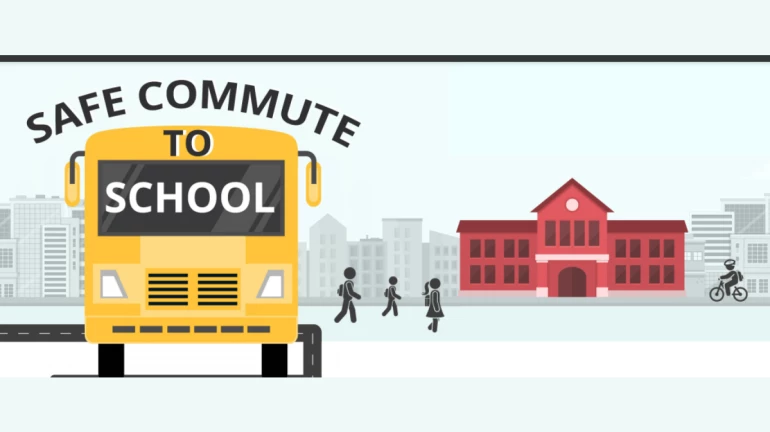
At 63% and 78%, both Mumbai and Pune (respectively) have a high proportion of respondents reporting that their schools do not conduct road safety workshops. This was the finding of ‘National Study on Safe Commute to School’, a research report by SaveLIFE Foundation and Mercedes-Benz Research and Development India (MBRDI). Released on October 07, 2021, the report highlights the gaps in road safety during children’s school commute. In 2019, 11,168 children below the age of 18 died due to road crashes, out of which 379 deaths took place in Maharashtra.
Manu Saale, Managing Director & CEO, MBRDI emphasised the importance of safe vehicles by stating “Above everything else, safety is a seminal part of the Mercedes-Benz DNA, and at MBRDI, as Daimler’s largest captive outside of Germany, our constant endeavour is to make the roads safer for everyone in our community. Our flagship MobileKids initiative, running for four years now, is a testament to our commitment to ensure road safety for children. It is our hope that this study will help all critical stakeholders to better appreciate where things stand in India in this context, and further extend our vision of zero casualties to all modes of road transport.”
Commenting on the launch, Piyush Tewari, SaveLIFE Foundation CEO and Founder, stated “Our findings through this report have once again emphasised that the right to safe commute to school is as important as the right to education itself. A comprehensive national and state school transport safety policy can ensure that. While there is a vaccine for COVID, the vaccine for child deaths on our roads is really our collective action"
Nationally, the availability of seat belts in school vehicles was less, with 47% of the respondents stating that their school vehicles were not equipped with seatbelts. In Mumbai and Pune, 45% and 34% of the respondents reported the same, respectively.
The report further revealed that nationally, 54% of the respondents who conveyed their general concerns about the various issues that they face during school commute to the school authorities reported that no action was taken by school authorities.
When asked about the driver’s road user behaviour, nationally, about 23% of the parents and 26% of the children using privately arranged vehicles claimed that the child complained about rash driving by the driver. About 32% of the parents and 52% of the children in Mumbai, and 23% of the parents and 14% of the children in Pune reported the same.
When it comes to usage of safety devices among self/ family driven transport users, nationally, 34% of the respondents admitted that they never ensure that all passengers are using a headgear/helmet. Further, 20% of the respondents that use private cars admitted that all passengers (including children) don’t wear seat belts.
In Mumbai, 14% of the respondents overall (12% parents and 16% children) claimed that it is never ensured that all passengers wear a helmet. Further, 12% of the respondents reported that they never wear seat belts during their commute.
In Pune, 32% of the respondents overall (37% parents and 27% children) claimed that it is never ensured that all passengers wear a helmet. Further, 26% of the respondents reported that they never wear seat belts during their commute.
The study, which also focused on the safety of children at the school zone revealed that nationally, close to half of the respondents reported that there was no cycling track present at the school zone, and 30% of the respondents reported the absence of footpaths at the school zone.
In Mumbai, 25% of respondents claimed that there were no cycling paths across the school zone, and 29% reported the absence of footpaths. Further, 93% of the respondents that commuted to school by walking reported that they never used retro-reflective stickers.
In Pune, 52% of respondents claimed that there were no cycling paths across the school zone, and 21% reported the absence of footpaths. Further, 56% of the respondents that commuted to school by walking reported that they never used retro-reflective stickers.
Now that schools have reopened in rural parts of Maharashtra, stakeholders need to ensure that children are protected from the dual risk of COVID-19 and road traffic injury during their school commute.
Research for the report has been conducted by the research firm Public Division, Kantar. The 14-city study recorded responses through a quantitative survey with 11,845 respondents, and 18 in-depth interviews with various stakeholders (child road safety expert, school authorities, enforcement officials, school vehicle and carpool drivers, children, and parents) were conducted across Delhi NCR, Mumbai, Bengaluru and Kolkata.





